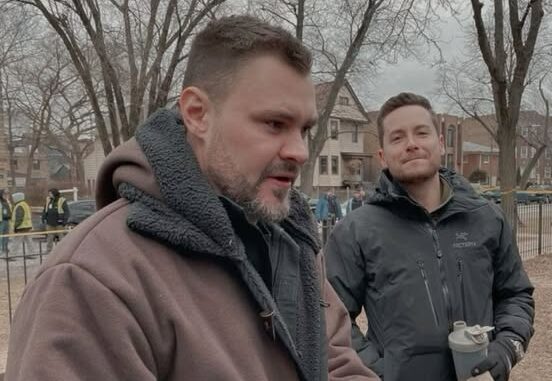
Chicago P.D. barrels toward the end of its twelfth season, one thing has become unmistakably clear: tough times are on the horizon for Adam Ruzek. A fan favorite since his introduction, Ruzek has evolved from the impulsive undercover specialist with a badge to one of the most emotionally layered and morally tested characters in the Intelligence Unit. But as Season 12 unfolds, the writers have made it clear that peace isn’t something Ruzek is meant to hold onto for long. Instead, he is being tested—by the job, by his past, and most painfully, by the things he wants most but struggles to keep.
Ruzek’s journey this season has been nothing short of emotionally grueling. While he’s managed to return to duty following his near-fatal shooting in Season 10, the scars of that trauma are far from healed. He has worked relentlessly to reclaim his place in Intelligence, putting up a front of resilience and calm, but there are cracks in the armor. His interactions have shifted—he listens more, pauses longer, and you can see in his eyes that the weight of everything he’s endured has fundamentally changed him. It’s not just physical recovery he’s chasing, but a sense of identity, of belonging, of clarity in a world that has repeatedly pulled the rug out from under him.
What makes Ruzek’s arc this season particularly poignant is the contrast between his professional dedication and personal uncertainty. On the surface, his relationship with Kim Burgess seems to have found steady ground. They’re co-parenting Makayla, exchanging glances that show tenderness and understanding, and even entertaining a sense of domestic possibility. Yet, there’s an unspoken fragility in their dynamic. Both have experienced so much trauma that it’s as if they’re afraid to breathe too deeply, in case it all collapses again. Ruzek wants more—more stability, more love, more future—but he also knows that wanting doesn’t guarantee having, not in this line of work and not with their history.

Recent episodes have foreshadowed a storm building around Ruzek, and not just emotionally. Professionally, he’s begun to question the long-standing gray morality that the Intelligence Unit often operates under. Voight’s leadership, once a guiding force for him, now appears as a philosophical point of tension. Ruzek is older, wiser, and carrying the weight of fatherhood—decisions that once seemed easy or necessary now keep him awake at night. When a recent case required bending the law for the “greater good,” Ruzek hesitated. He followed through, but not without visible discomfort, and that moment didn’t go unnoticed. There’s a rift forming, subtle for now, but one that could explode under the right pressure.
Ruzek has always walked the line between duty and compassion, but Season 12 is asking him to define where he truly stands. Is he a soldier of Voight’s world, where justice often skirts the edge of legality? Or is he forging a new path, one that prioritizes community trust and moral responsibility over tactical victories? These questions don’t come with easy answers, and for Ruzek, they come at a cost. His identity as a cop is at stake, but so is his identity as a father, a partner, and a man trying to heal.
Compounding this internal crisis is the growing pressure from external forces. The department is under increasing scrutiny from the city and media, and political shifts in Chicago have left Intelligence vulnerable. Ruzek’s every move, once protected by the insulated loyalty of the unit, is now being watched. A single misstep could not only cost him his badge but jeopardize his family’s future. This level of tension is new for Ruzek, who’s used to relying on instinct and brotherhood. But now, the stakes are higher, and the game has changed.
